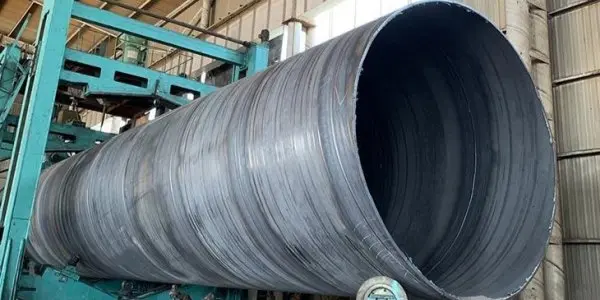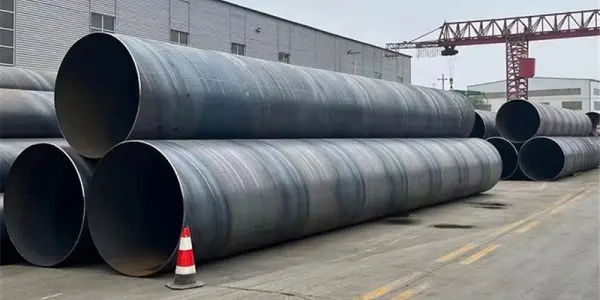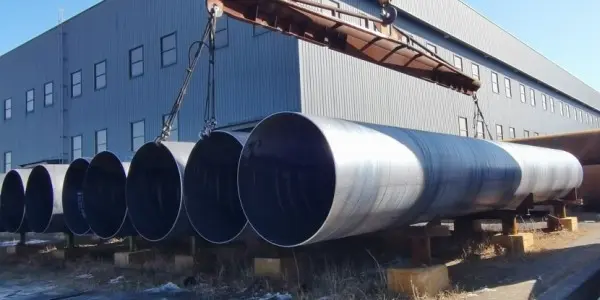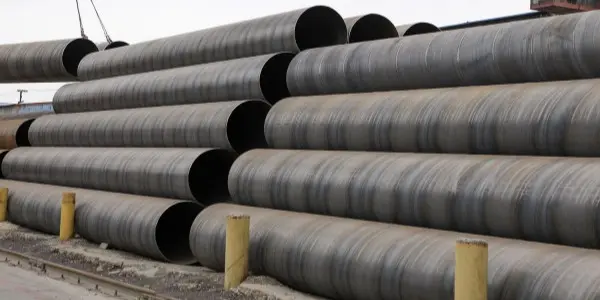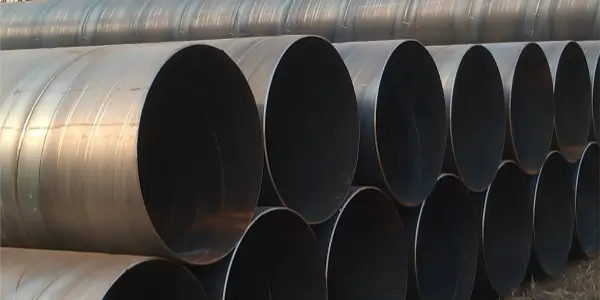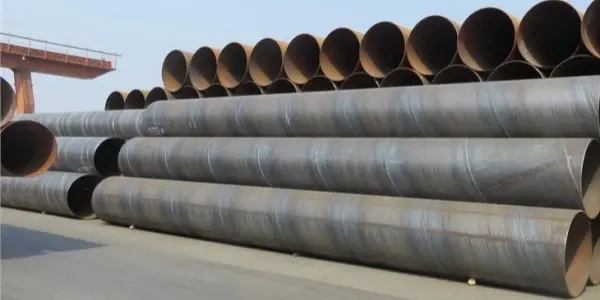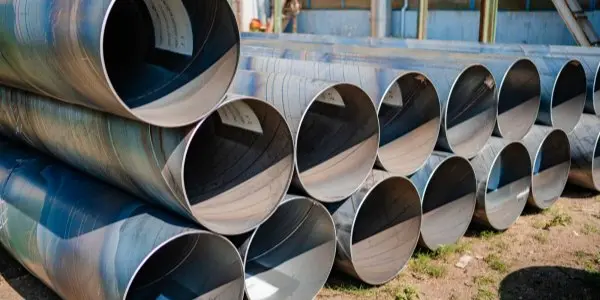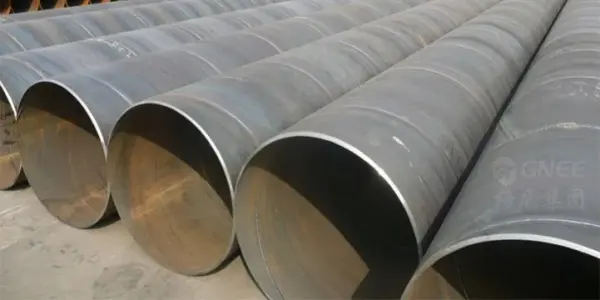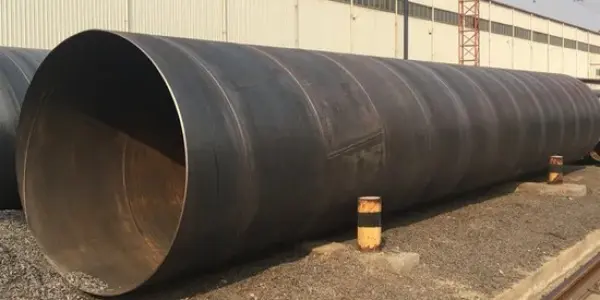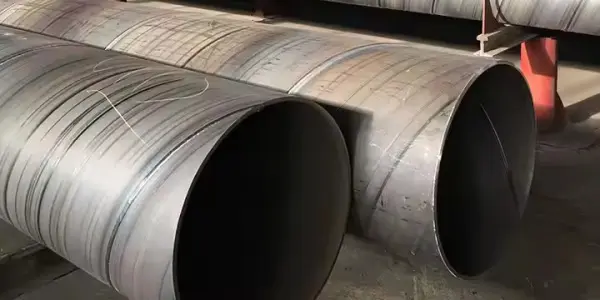-
What is ASTM A53 SSAW steel pipe?
ASTM A53 SSAW steel pipe is a widely used carbon steel pipe standard designed for low to medium-pressure applications, including water transmission, gas pipelines, structural frameworks, and mechanical systems. Issued by the American Society for Testing and Materials (ASTM), this standard covers both seamless and welded steel pipes, offering versatility across multiple industries. Compared to other standards like ASTM A252 (for piling) and ASTM A139 (for fluid transport), ASTM A53 stands out for its broad applicability in construction, oil & gas, industrial systems, and infrastructure projects. Here ia an overview of ASTM A53 SSAW steel pipes.
Read More
-
Top 5 ASTM A139 SSAW steel pipe manufacturers
When it comes to infrastructure projects, industrial pipelines, and structural applications, selecting the right steel pipe manufacturer can make all the difference. ASTM A139 SSAW (Spiral Submerged Arc Welded) steel pipes are widely used in large-diameter, low-pressure conveyance of water, gas, and structural piling. Their spiral-welded design offers excellent strength, durability, and cost efficiency — but only when produced to high standards. In this blog, we’ve rounded up the top five global manufacturers known for their expertise in producing ASTM A139 SSAW steel pipes in 2025. These companies stand out not only for their production capabilities and product quality, but also for their global certifications, innovative technologies, and reliable supply chains. Let’s dive in and explore who makes the cut.
Read More
-
All about ASTM A139 SSAW steel pipe
ASTM A139 specifies the requirements for spiral welded steel pipes produced by the Electric-Fusion Welding (EFW) process. These pipes are intended for use in low-pressure fluid transportation and structural applications. Common areas of use include water conveyance, drainage systems, structural supports, and general industrial piping. Issued by the American Society for Testing and Materials (ASTM), the A139 standard ensures that the pipes meet stringent criteria for dimensions, mechanical properties, and overall quality. While ASTM A252 focuses on steel pipe piles used for foundation support, ASTM A139 is designed to serve both fluid transmission and structural functions. This guide provides an in-depth look at ASTM A139 SSAW steel pipes.
Read More
-
Overview of ASTM A252 SSAW steel pipe
ASTM A252 is a widely recognized standard issued by the American Society for Testing and Materials (ASTM), covering welded and seamless steel pipes used in structural applications such as piling, foundation supports, and infrastructure development. This specification ensures that the steel pipes meet stringent requirements for mechanical strength, weldability, and long-term durability. Spiral Submerged Arc Welded (SSAW) pipes manufactured under ASTM A252 are especially suited for bearing and casing applications, including bridge foundations, marine piling, and underground structures. The helical weld seam enhances their pressure resistance and load-bearing capacity, offering a cost-effective alternative to seamless pipes without compromising structural integrity. Here is an overview of ASTM A252 SSAW steel pipe.
Read More
-
Guide of EN 10217 SSAW steel pipe
The EN 10217 standard governs welded steel pipes intended for pressure applications, including boilers, pipelines, and industrial fluid transport systems. Issued by the European Committee for Standardization (CEN), this standard ensures that the pipes meet the required mechanical strength, weldability, and corrosion resistance needed for such critical applications. This guide provides an overview of the EN 10217 SSAW steel pipe.
Read More
-
Key details of EN 10219 SSAW steel pipe
EN 10219 is a European standard developed by the European Committee for Standardization (CEN) for cold-formed welded structural steel pipes. Widely used in construction, infrastructure, water transmission, and industrial sectors, this standard ensures that pipes meet strict requirements for mechanical strength, corrosion resistance, and structural integrity. This guide outlines the key features of EN 10219 spiral submerged arc welded (SSAW) steel pipes.
Read More
-
What is ISO 3183 SSAW steel pipe
ISO 3183 SSAW Steel Pipe is a widely adopted international standard developed by the International Organization for Standardization (ISO). It defines technical requirements for steel pipes used in the oil, gas, and petrochemical sectors, ensuring pipelines meet rigorous standards for mechanical strength, corrosion resistance, and pressure containment. This article will briefly introduce what is ISO 3183 SSAW steel pipe.
Read More
-
Complete guide of IS 3589 SSAW steel pipe
IS 3589 SSAW steel pipe is a widely adopted specification in India, specifically developed for applications such as water transmission, industrial pipeline systems, and structural engineering. Regulated by the Bureau of Indian Standards (BIS), this standard ensures that SSAW (Spiral Submerged Arc Welded) steel pipes conform to stringent mechanical, chemical, and performance criteria. This guide provides a comprehensive overview of IS 3589 SSAW steel pipes, highlighting their features, manufacturing process, and key applications.
Read More
-
Top JIS 3457 SSAW steel pipe manufacturers
Selecting a reliable manufacturer is essential to ensure product quality, durability, and full compliance with JIS 3457 standards. This article will briefly introduce top JIS 3457 SSAW steel pipe manufacturers.
Read More
-
Overview of JIS 3457 SSAW steel pipe
JIS G 3457 SSAW (Spiral Submerged Arc Welded) steel pipes are manufactured in accordance with the Japanese Industrial Standards (JIS). These pipes are widely utilized in water transmission projects, structural frameworks, and industrial pipeline systems. Thanks to their high strength, excellent corrosion resistance, and cost-efficiency, they are especially suitable for long-distance water supply lines, bridge structures, and other large-scale infrastructure applications. This guide provides a comprehensive overview of JIS G 3457 spiral welded steel pipes.
Read More

 English
English Español
Español




 Tel : +86-18565811709
Tel : +86-18565811709 Email :
Email : 
